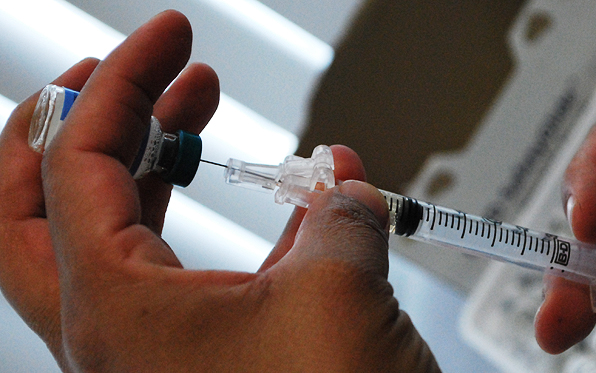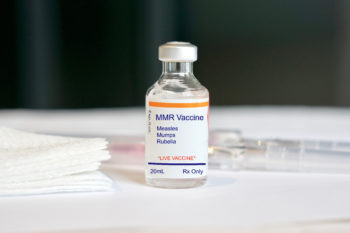Pandemic H1N1 is the primary influenza virus circulating this season in San Diego and across most of the nation, the County Health and Human Services Agency announced today.
Of 1,730 lab-confirmed influenza cases reported so far this season in San Diego, nearly 94 percent are influenza A. Influenza A has several subtypes, including Pandemic H1N1 and H3N2. During a typical year, the primary influenza virus is H3N2 or “seasonal” flu. This season, there are 10 cases of Pandemic H1N1 for every case of H3N2.
The Centers for Disease Control and Prevention (CDC) has reported that Pandemic H1N1 is the main influenza virus making Americans sick across the nation. Local and national flu reports show that adolescents and young to middle-aged adults are more affected than other age groups.
The CDC has investigated why H1N1 virus sickens more young people compared to children and older adults, who are typically hit hardest by other flu strains because of their weaker immune systems. Two factors seem to play a part: younger and middle-aged adults have not been exposed to the H1N1 virus as much as older adults, and these groups typically have the lowest vaccination rates in the nation.
In 2009, the CDC concluded that adults older than 60 years of age had a level of immunity that was not present in children and younger adults when the H1N1 pandemic hit that year. Further research has revealed that the 2009 Pandemic H1N1 virus has similar components to a previous H1N1 virus that was dominant during the 1950s and even earlier.
“Older people have some element of immunity to Pandemic H1N1 because they’ve had more exposure to these influenza viruses than younger groups,” said Sayone Thihalolipavan, M.D., M.P.H., County deputy public health officer.
The death last week of a 26-year-old reporter visiting San Diego from Washington, D.C. is under investigation as possibly due to Pandemic H1N1 complications. It is unknown whether the woman had underlying medical conditions and whether she had received a flu shot. One local resident is a confirmed H1N1 death: a 49-year-old male with underlying medical conditions and unknown vaccination status.
“The recently reported deaths are a reminder that, regardless of your age, the best protection against any known strain of flu is getting vaccinated,” Thihalolipavan said. “The current flu vaccine offers protection against Pandemic H1N1, influenza H3N2 and two strains of influenza B.”
The County Health and Human Services Agency publishes the weekly Influenza Watch report, which tracks key flu indicators and summarizes influenza surveillance in the region. All other indicators are at expected levels for this time of year.
For the week ending Dec. 29, 2018, the Influenza Watch report shows the following:
- Emergency department visits for influenza-like illness: 6 percent of all visits (compared to 4 percent the previous week)
- Lab-confirmed influenza cases for the week: 396 (compared to 405 the previous week)
- Total influenza deaths to date: 9 (compared to 44 at this time last season)
- Total lab-confirmed cases to date: 1,730 (compared to 7,319 at this time last season)
How to Prevent the Flu
CDC recommends that everyone 6 months and older get a flu shot every year. The vaccine is safe and effective. It takes two weeks for immunity to develop.
Vaccination is especially important for people who are at high risk of developing serious complications from influenza. They include:
- People with chronic medical conditions like asthma, diabetes and lung disease, even if symptoms are under control
- Pregnant women
- People 65 years and older
- People who live with or care for others who are at higher risk
In addition to getting vaccinated, people should also do the following to avoid getting sick:
- Wash hands thoroughly and often
- Use hand sanitizers
- Stay away from sick people
- Avoid touching your eyes, nose, and mouth
- Clean commonly touched surfaces
- If you are sick, stay home and avoid contact with others
The flu vaccine is available at doctors’ offices, community clinics, and retail pharmacies. If you don’t have medical insurance, you can go to a County public health center to get vaccinated. For a list of locations, visit www.sdiz.org or call 2-1-1.






